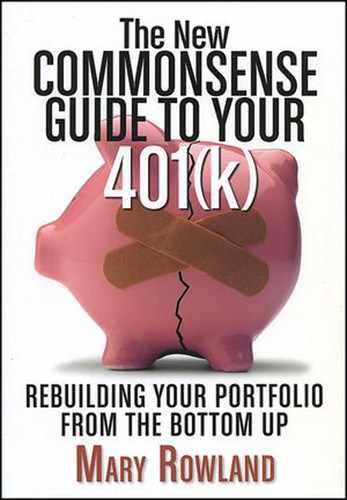YOU PROBABLY want to know what the experts did. To find out, I called Don Phillips, whom I've known professionally since 1986, not long after he rolled out of graduate school and into a job of founding Morningstar Mutual Funds, a company that revolutionized the fund industry. Some claim Morningstar's rating system of giving each fund a star rating of one to five—five being highest—was the key to opening fund investing to the rest of us.
Morningstar revolutionized mutual funds because Phillips and his colleagues began telling us the truth about funds. Before Morningstar's ratings, we had marketing materials from the fund companies and information from the Investment Company Institute, the industry trade group, and from data services that were paid by the mutual funds themselves. If I was working on a story and thought I had the dirt on some mutual fund, I could trust Phillips to confirm or tell me I was off-base. Never did I think he told me that because of some secret agenda.
"The basics of financial planning have not changed," Phillips says. He says that if you go to a financial planner at any time in your career, you will get this two-part advice: Save and invest. When you start out in your career, you should build up a nest egg that would last you for six months. At the time of retirement, you should have savings (or cash equivalents) to last three to five years. Phillips says that people talk about how terrible the market is, how they plan to retire this year but they've lost 40 percent of the 401(k) money that they'd counted on for retirement. "If you have five years of cash, you don't have to worry about how terrible the market is," he says. And he's right. When we blame the investment banks and the insurers and all the other companies for leveraging too much, we ought to take a look in our own backyard. Were you carrying too much debt when the market plunged? I was. Had you stretched to the limit to take out a super-big mortgage? Did you have money set aside in cash for near-term needs? I didn't. I lost 50 percent of my son's college account just as he was about to start college.
Phillips admires John Templeton, who built a successful mutual fund company by sticking with a prudent investment strategy. Templeton paid cash for automobiles. He paid cash for a house. "The mutual fund industry never talked about saving because that's not what it gets paid for," Phillips says. That's the part we need to do on our own. Templeton donated 10 percent of his income to the church, and he still managed to build his own wealth and that of his investors. "That kind of discipline, learning to live within your means, is out of fashion," Phillips says.
"The problem is that people expect to live like their parents when they graduate from college," Phillips says. "My wife and I lived in the cheapest part of town. We didn't have a car. We saved regularly. And we said: 'This is what we're going to do.'" They rented cheap apartments because they didn't see any value in paying high rent. They now live in Lincoln Park, a lovely part of Chicago. Phillips says many recent college graduates live in his neighborhood, paying $2,000 a month in rent.
Phillips and his wife got out of college at the University of Texas with no debt, thanks partly to low-cost tuition. Texas charged Phillips $4 a semester hour because he was a resident; Anne paid $40 because she was an out-of-state resident. They got married in 1985. Anne worked at the Federal Reserve Bank until 2000 when they had their third child and first daughter. And they continue to follow the same basic financial planning rules even though Phillips became a multimillionaire when Morningstar went public in May 2005.
"It really bothers me when people say that everything we learned is a lie," Phillips says. "They say it is somehow nefarious and it's a scam and you were all cheated. That's the most dangerous thing out there: all that cynicism." Investing is hard, Phillips says. There have been numerous really tough periods like the end of 2008 and beginning of 2009. But people have counted on the investment and real estate markets to do the heavy lifting, and they just spent whatever they wanted.
If we get one lesson from this time of market doldrums, I hope it is that we each must take responsibility for ourselves and teach our kids to do the same.
